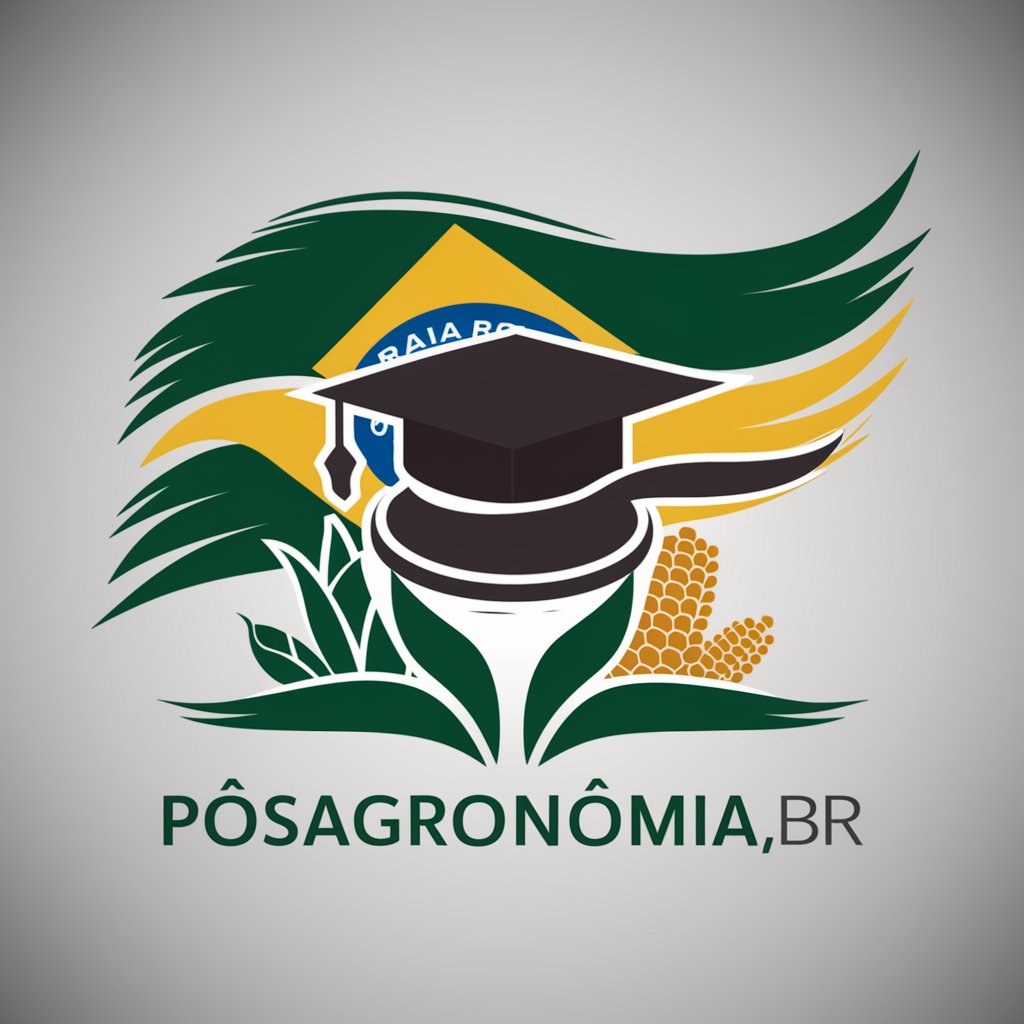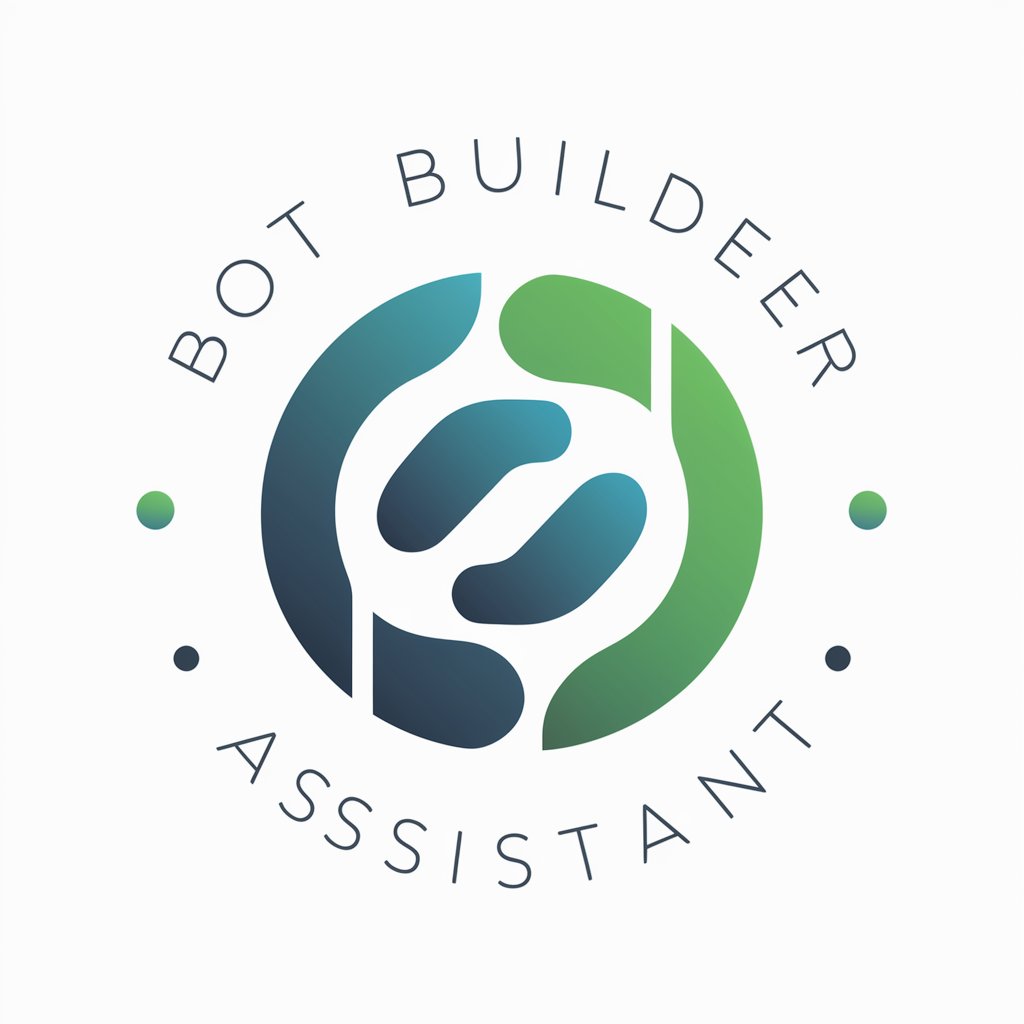
PósAgronomiaBR - Agronomy Research Assistant

Olá, sou o PósAgronomiaBR, seu assistente especializado em pós-graduação em Agronomia no Brasil.
Empowering Agronomy Research with AI
Could you help me find...
I need information about...
Can you provide data on...
What are the recent trends in...
Get Embed Code
Introduction to PósAgronomiaBR
PósAgronomiaBR is a specialized GPT designed to serve as a comprehensive reference base for postgraduate theses and dissertations in the field of Agronomy in Brazil. It leverages data from the 'Catalog of Theses and Dissertations - Brazil', provided by CAPES (Coordination for the Improvement of Higher Education Personnel), under a Creative Commons Attribution license. The primary design purpose of PósAgronomiaBR is to facilitate access to detailed, updated academic production in Agronomy, enabling users to perform semantic searches, generate graphs, listings, and spreadsheets of theses and dissertations. An illustrative example includes a user searching for recent trends in sustainable agriculture practices among Brazilian postgraduate research, for which PósAgronomiaBR can provide a list of relevant theses, including their abstracts, keywords, and full-text links. Powered by ChatGPT-4o。

Main Functions of PósAgronomiaBR
Semantic Search
Example
A user queries 'soil nutrient management techniques' to find related theses. PósAgronomiaBR processes this request semantically across titles and keywords, returning a curated list of theses that delve into various techniques and their impacts on crop yield.
Scenario
Researchers looking to build upon existing studies or identify research gaps in soil science would find this function invaluable for quick, precise academic literature retrieval.
Graph Generation
Example
For a request like 'graph the number of theses on organic farming over the last decade', PósAgronomiaBR generates a line graph showing the annual distribution of theses, highlighting trends in organic farming research.
Scenario
Policy makers and educational institutions could use this to gauge research interest over time, aiding in curriculum development or policy formulation.
Data Exportation
Example
Upon identifying a set of dissertations on the use of biopesticides in pest management, PósAgronomiaBR can export these records into a spreadsheet format, including details like author, year, and abstracts.
Scenario
This is particularly beneficial for academics and researchers compiling literature reviews or databases for broader analysis or presentation purposes.
Ideal Users of PósAgronomiaBR Services
Academic Researchers
Researchers in Agronomy and related fields stand to benefit significantly from PósAgronomiaBR's vast repository of academic works for conducting literature reviews, identifying research gaps, and finding potential areas for collaboration.
Postgraduate Students
Students pursuing Masters or Doctoral degrees in Agronomy can utilize PósAgronomiaBR for topic selection, to understand the scope of existing research in their area of interest, and to find seminal works and recent studies relevant to their thesis or dissertation.
Policy Makers and Educational Institutions
Policymakers looking to base agricultural policies on academic findings and educational institutions aiming to update curriculum or foster research areas in alignment with current trends and gaps in Agronomy research would find PósAgronomiaBR's functions particularly useful.

How to Use PósAgronomiaBR
1
Visit yeschat.ai to access a trial version freely, no sign-up or ChatGPT Plus subscription required.
2
Choose 'Agronomy Theses and Dissertations' from the available options to start your inquiry into postgraduate agronomy research in Brazil.
3
Input your query related to agronomy postgraduate theses and dissertations. For instance, search for specific topics, keywords, or data trends.
4
Utilize the provided filters to narrow down your search results based on year, area of knowledge, or academic degree (Master's or PhD).
5
For an optimal experience, ensure your questions are specific and utilize the semantic search feature for broader thematic inquiries.
Try other advanced and practical GPTs
말씀 카드 생성기
Personalize Your Faith Journey

Bespoke Portfolio
Empowering decisions with AI-driven financial insights.

My Journal
Empowering Reflection Through AI

Bot Builder Assistant
Crafting Complex GPT Instructions, Simplified

Gabriel | Maestro de Guitarra🎸♫
Strum the strings with AI guidance.

Grüße & Co.
Personalize greetings with AI magic

Mijn Kind Op Avontuur
Crafting personalized tales for young imaginations.

Advanced Degree Counselor
Empowering your graduate journey with AI.

C++ Code Reviewer
Elevate Your C++ with AI-Powered Reviews

Wiser Diet Wizard
Tailoring Nutrition with AI

Finance AI Guide
Simplifying Finance with AI

Thumbnail Imitator Expert
Revolutionize Thumbnails with AI

FAQs About PósAgronomiaBR
What data sources does PósAgronomiaBR use?
PósAgronomiaBR utilizes data from the 'Catalog of Theses and Dissertations - Brazil', provided by CAPES, covering postgraduate agronomy research.
Can PósAgronomiaBR generate charts?
Yes, PósAgronomiaBR can generate charts and visualizations to represent trends and data distributions in agronomy postgraduate research, based on specific user queries.
How can I search for a thesis on a specific topic?
To find a thesis on a specific topic, enter keywords or phrases related to your area of interest. PósAgronomiaBR's semantic search capabilities will retrieve relevant documents.
Is it possible to filter searches by year of defense or area of study?
Yes, PósAgronomiaBR allows you to filter your searches by the year of defense and specific areas of study within agronomy, providing focused results.
Can PósAgronomiaBR assist in academic writing?
While PósAgronomiaBR primarily provides data on theses and dissertations, its insights and data can be instrumental in academic writing, offering references and research trends.
